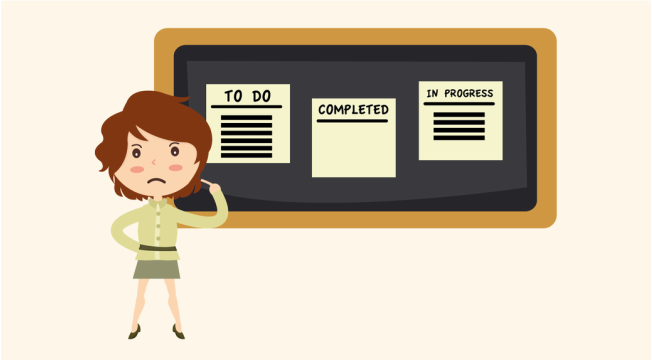|
Are you a procrastinator? Especially on the business building tasks that will make a huge difference to your own focus and productivity, the culture of your organisation, the direction of your business, even the motivation and results achieved by your team? For example, clearly defining your company's values, its mission, identifying measurable business goals, creating a tactical plan to achieve those goals, sharing it with the team and then taking action. It's necessary for any business right? So why don't we do it? Instead we too often delay these vital steps altogether and throw ourselves into the action, the operational day-to-day. This is a dilemma for business leaders that seems to be getting worse, not better. But why? Well it seems to be the result of increasing external stimulus and impulse control... not so much about willpower as you may have thought. That doesn't mean we have no control over it. It just means we need to recognise it and take action to avoid it. You need to avoid procrastination! On a recent plane trip I listened to a brilliant interview. Brian Johnson discussing with Piers Steel his book, The Procrastination Equation. Here's my take on the key points discussed... First let's take a quick look at our anatomy. We have a very well established and dominant area of the brain called the limbic system. It's automatic and emotional. It tells us to remove our hand from a hot stove. It also tells us to feel joy, sadness, frustration and excitement as a result of external stimulus. Then we have the prefrontal cortex. It allows us to process information and make decisions. It's unfortunately not automatic, but it's part of what makes us uniquely human. It's rational and allows us to make plans for the future. So setting a goal to implement a business planning session later in the week, or even exercise on the weekend is easy, we use our rational prefrontal cortex to make that decision... too easy. But once that day arrives, the limbic system gets involved and it really prefers immediate gratification. It says, whoa, wait a minute... I know this is important, but what about your email? You haven't looked at any messages this morning. What if there's something urgent to address? Or what about the family? It's been so hectic lately. Maybe we should all go out to breakfast and spend some quality time together? And before you know it, your well meaning plans of business development or health and wellness have been sidelined for another day. Here's Pier' equation for decision making... Motivation = Expectancy x Value / Impulsiveness x Delay Motivation is obviously key. If we're really motivated, we're less likely to procrastinate. To determine your own level of motivation, take a look at whether you really expect to achieve your goal (expectancy). Then consider if the goal will be seriously rewarding (value). Then look at the denominator of the equation. Impulsiveness represents your sensitivity to a delay in gratification. If you are more impulsive, you'll generally need gratification to be fairly immediate to make the goal valuable. And if the reward of any goal is just too far away, it's easy to feel less motivated about taking action, regardless of your level of impulsiveness. So if you're like most business leaders... easily distracted by a new product idea, a more exciting project, procrastination could be an issue for you. The good news is the solution is fairly simple (but not always easy). First you'll need to analyse your goals (if you have them clearly defined... if not, we'll get to that next). Are they believable? Do they offer you real rewards? Are those rewards immediate enough? If it's a resounding yes to all of these questions, you just need to develop a plan of attack, implement and eliminate distractions along the way. We live in a busy world where big business spend a small fortune trying to attract our attention. It can be tricky to stay on task, but it can also take as much as 15 minutes to refocus on a task after being distracted. So if you're checking email regularly, you'll be less productive. If you're multi-tasking (really task-switching), you'll be less productive. Remove the stimulus responses (like email beeps) to eliminate the need for willpower and you could save a ridiculous amount of time and reach your goals sooner. It's actually the convenience of modern technology that's creating the problem and making us feel as though we can't get enough done. We just need to stop doing it all... simultaneously! There's a link at the end of this article to a great productivity tool called Saent. It may be exactly what you need to get started. Now you know what causes procrastination and how to address it. If you've procrastinated so much that you don't yet have clearly defined business goals, I'll cover a very simple goal setting strategy in an upcoming post. And if you need help defining your goals and creating actionable tasks to achieve them, get in touch. Having someone to guide you and then keep you accountable can be a great motivator. To learn more about David Lumb visit betterbusinesstoday.com.au
To listen to the interview with Brian Johnson and Piers Steel visit iTunes To learn more about Piers and his theory visit procrastinus.com To stop the distractions take a look at saentproductivity.com
1 Comment
|
Join up to receive David's tips for business leaders direct to your inbox. You can always unsubscribe with one click. And we'll never share your details with others... ever.
AuthorBetter Business Today was created to help business leaders navigate their market place and improve business performance (or the lifestyle it offers), without the guesswork. Simple steps, actionable advice and fast results. Archives
February 2017
Categories |
|



